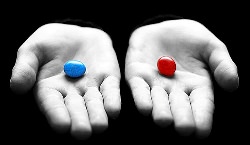BingDing
Member
Early 1960s, before the military/industrial complex had taken over public life, and the idea of personal freedom was still alive.
Edit: Huh. I don't know how to post a link to YouTube. Google on
JFK - The Speech That Killed Him I guess.
Pretty inspiring, IMO
Edit: Huh. I don't know how to post a link to YouTube. Google on
JFK - The Speech That Killed Him I guess.
Pretty inspiring, IMO
Last edited:

